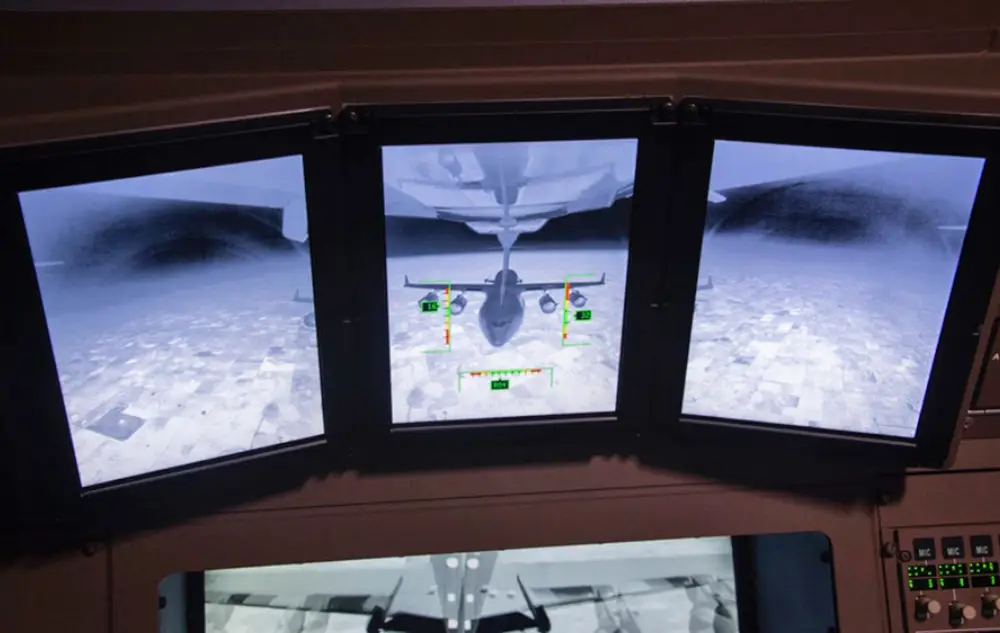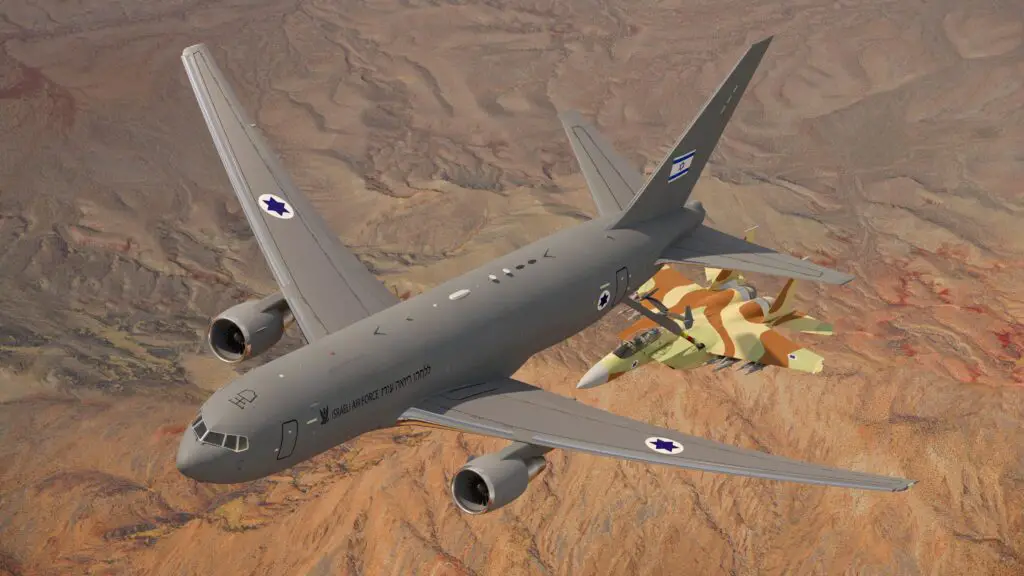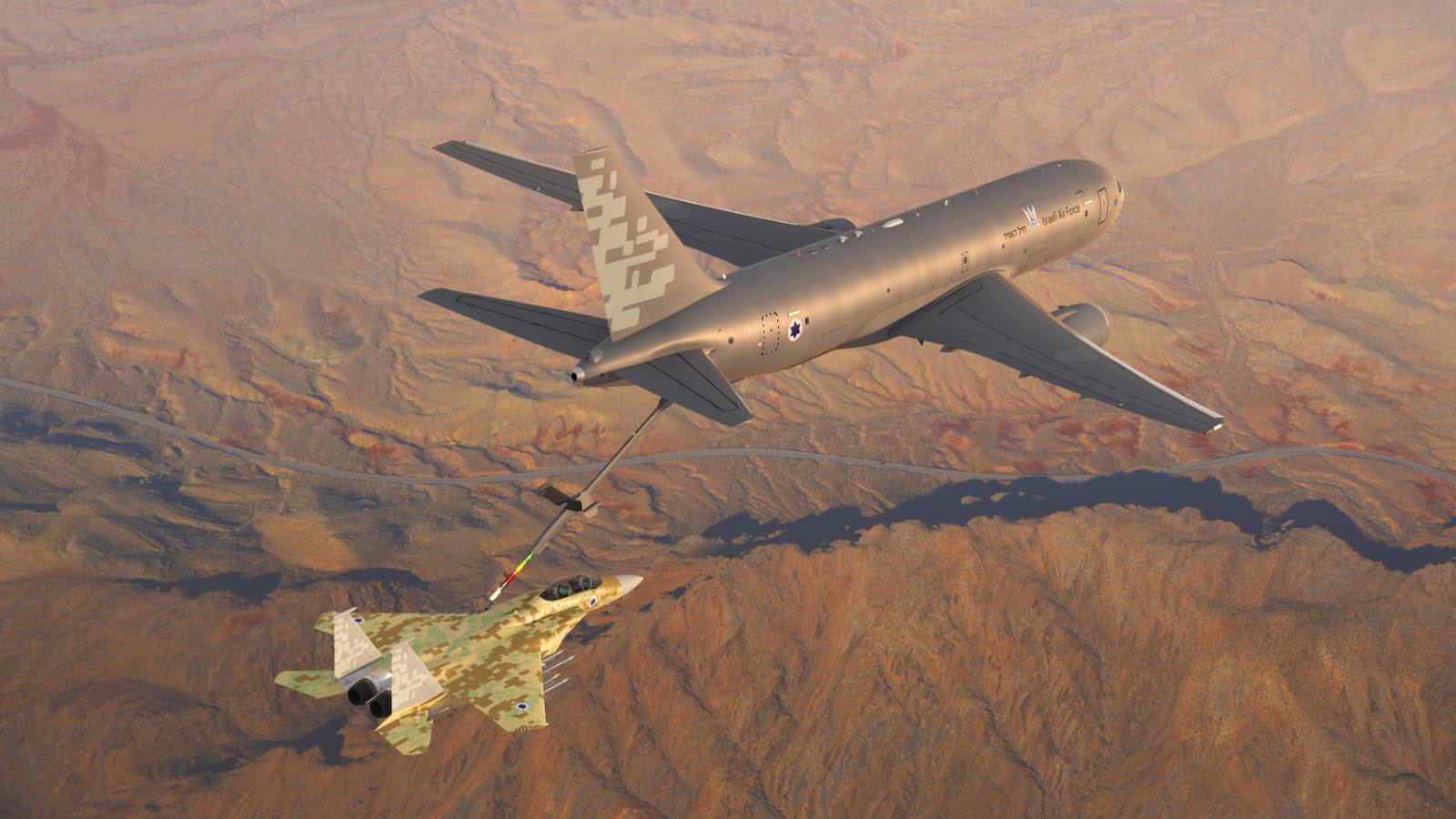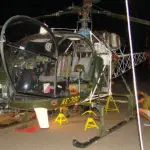After months of delay, Boeing received the long-awaited contract for the production of four KC-46A tankers for the Israeli Air Force (IAF).
According to information released by the U.S. Department of Defense, the contract for the procurement of four Boeing KC-46A Pegasus air-to-air refueling aircraft, valued at more than $927 million, was inked.
This contract also includes non-recurring engineering design and testing for the Remote Viewing System 2.0 and Air Refueling Operating Station 2.0 mission equipment and installation, integrated pre-delivery logistics support and technical publications. The operation will be performed through the Foreign Military Sales (FMS) program.
Technical and political issues
Since the beginning of last year that, Israel’s Ministry of Defense had already signed the first letter of acceptance (LOA) for the purchase of the first two KC-46A, which is part of a more than $9 billion deal for the modernization of the Israeli Armed Forces.
Following gov. approval of the IDF acquisition plan, the MOD has begun to construct procurement programs. These are conducted with US Military channels, utilizing Foreign Military Financing. The first LOA was signed over the weekend for the procurement of 2 Boeing Tanker Jets.1/2 pic.twitter.com/9vAE52G3a1
— Ministry of Defense (@Israel_MOD) February 22, 2021
And in December 2021, the Israeli Ministry of Defense signed another LOA, expanding the number of Pegasus to the current four units. However, the definitive purchase contract had been delayed until now due to a number of issues.
One of these was the refusal of the U.S. government to bring forward the delivery date of these aircraft, which the IAF intended to use in support of a possible raid against Iranian nuclear facilities.
In the end, it seems that the Israeli Air Force would have skipped this hurdle by introducing, together with the local industry, a series of modifications to the F-35I that would allow them to attack Iranian nuclear facilities without the need to refuel in the air.
See also: Israeli F-35Is could attack Iran without the need for in-flight refueling
The other reason for the delay in signing the contract could have been of technical origin, in particular the deficiencies systematically experienced by the Remote Vision System (RVS), which is required to refuel the aircraft by means of the boom system.
The current RVS system is plagued with problems, including lighting, poor quality images and distorted views of the aircraft, which led to several incidents during refueling maneuvers.

But the Israeli aircraft will come with the upgraded RVS 2.0, which will come with software and hardware improvements, including the addition of 4K high-definition cameras that will display color images, as well as modern processors and LiDAR sensors that will help improve depth perception. These modifications would eventually allow for the development of autonomous fueling software, driven by Artificial Intelligence.
Under the terms of the contract, Boeing must complete delivery of the four aircraft by December 31, 2026 at the latest.















